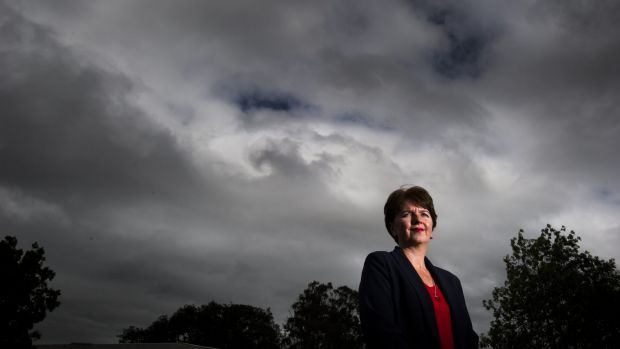
Tough times: Karralika CEO Camilla Rowland. Photo: Rohan Thomson
The region’s only residential drug and alcohol rehabilitation service for families affected by addiction may be forced to close in less than two months after a federal government funding cut.
Vulnerable families could be made homeless and children sent to foster care if Karralika cannot find alternative funding or appropriate transitional support by the end of the month.
Karralika CEO Camilla Rowland said the organisation had until the end of January to decide the future of its Family Program after learning two days before Christmas it had not been included in the Department of Social Services’ latest funding round.
Demand is at an all-time high and the service was seeking extra funding.
“This is the only program of its kind that takes couples or parents with children to do intensive rehabilitation in the whole of the ACT and the southern half of NSW – there is no replacement,” Ms Rowland said.
“I’ve worked for non-government charities in community services and health for over 25 years and what shocked me is that this is the first time in 25 years I’ve seen such a critical frontline service look at being axed.”
The Karralika Family Program supports adults with alcohol and other drug dependencies and accompanying children up to 12 years old with rehabilitative care in a residential therapeutic community setting for up to 12 months.
Eight families including nine adults, 14 children and one pregnant mother are currently in the program. There are seven families on the waiting list.
Ms Rowland said Karralika had received about $280,000 excluding GST each year since the 1990s for the family program and had hoped to secure closer to $500,000 to expand the service.
She hoped the unsuccessful funding bid was an oversight and said the program’s closure would have serious repercussions for housing, foster care and the legal system.
“Some of our families will be homeless because they don’t have accommodation to go to … of course there’s been cuts to housing funding as well,” she said.
“A lot of our children are under Care and Protection orders and if their parents leave they will have to go into foster care. Not only is it a huge social impact on these kids and the families but … we’re looking at costs of up to $10,000 per child per year at a minimum in foster care.
“We have a lot of people who come through on court orders. If we have people who have been court ordered to attend our program, and their children are under Care and Protection orders, how is that going to be sorted out? Where do they go?”
Ms Rowland has written to the federal government to urge the department to reconsider the cut, and has asked the ACT and NSW governments to jointly consider picking up the shortfall.
Aside from the Family Program, current funds also support a parent education program and therapeutic playgroups.
“We were really hoping to ramp up the ratio of staffing support to the children in terms of their own counselling and own support [and] some of the different types of therapies for children not only living in the program but also their older siblings,” she said.
“If the Commonwealth government and other governments are saying these emergency, critical frontline services are in jeopardy, this sets a precedent.”
Ms Rowland said breaking the news of a likely closure to the eight families under care was “absolutely heart-wrenching”.
“It was one of the worst days of my life, to tell a group of families with small children running around and babies that we may have to close the program,” she said.
“We have lots of great stories of couples and single parents who have been through horrendous situations who have managed to turn their lives around.”
Member for Canberra Gai Brodtmann said she had urged Minister for Social Services Scott Morrison to reconsider the funding cut.
“Minister Morrison claims that critical front-line services would not be affected by these cuts – however Karralika is considered a critical front-line service by stakeholder and referral agencies,” she said.
